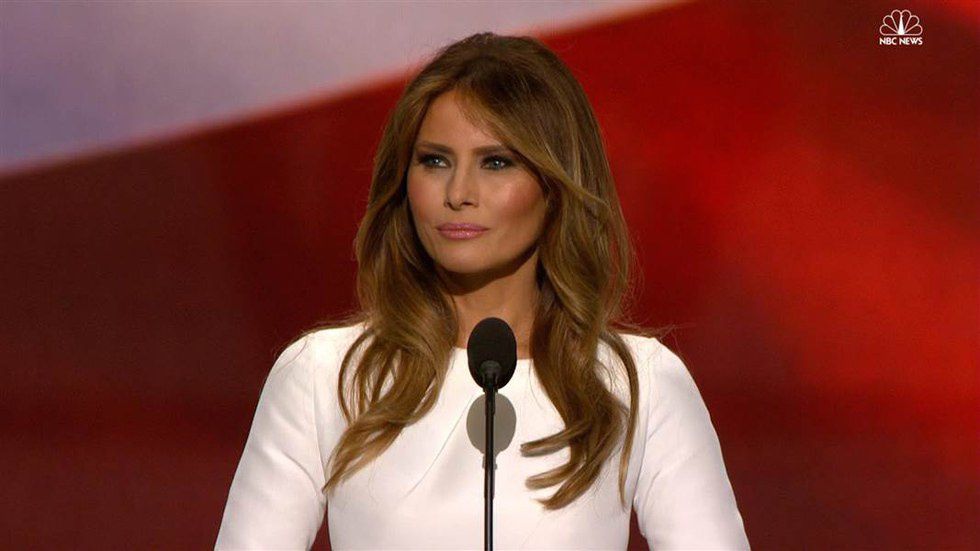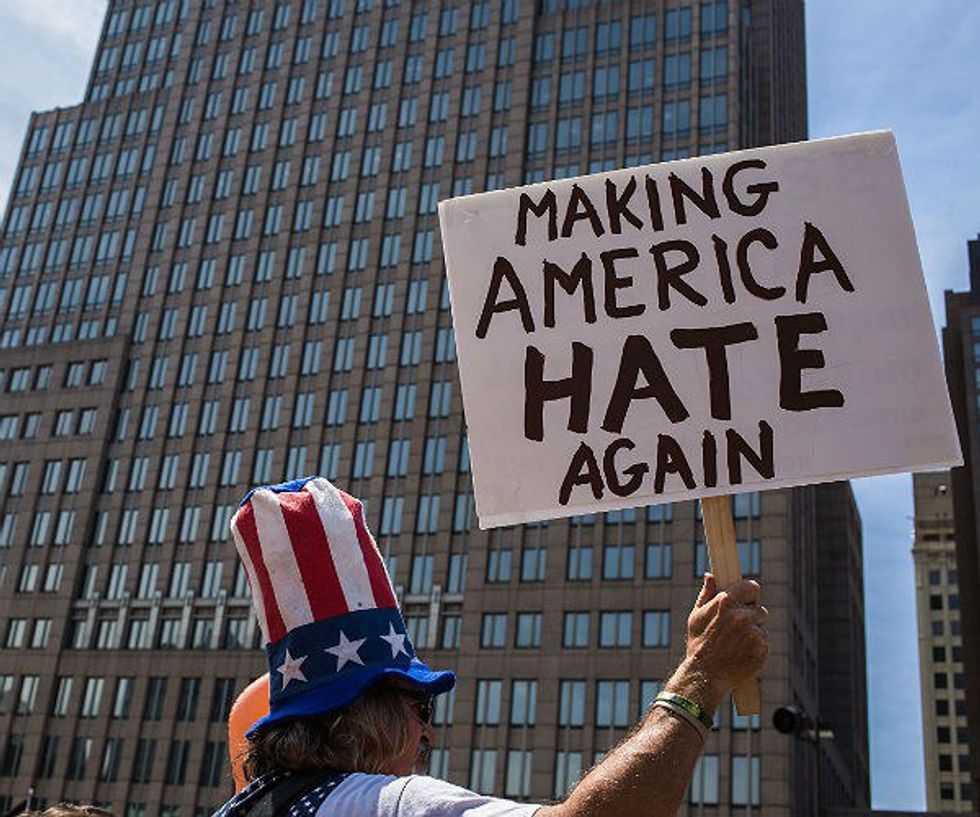I got home from rehearsal late on Monday evening and cooked some dinner with my mom. As we sat at the kitchen table and talked over food, white noise emanated from another room. There were cheers and commentators, and music between rounds.
About a week ago I had watched the Team USA gymnastics finals, which would determine who would be on our Olympic Team for women’s gymnastics in Rio. There were the same sounds: cheering, commentary, and music between rounds.
Suddenly, I heard someone speaking and a light went off in my head. “Is that the GOP convention!?” I asked suddenly, standing up from the dining room chair. I peeked around the corner to see what was playing on the TV and sure enough, it was the Republican National Convention (RNC).
I came back to my seat and sat down, listening still to the noise from the other room. “Why does it sound like a sporting event?” I said, bewildered, even though I shouldn’t have been.
As I listened a while longer, I noticed again the cheering and the commentators, who spoke with the same vocal tone as you would hear during a tennis match, a football game (American football, that is), or, like the week before, the gymnastics finals.
“It’s so-and-so’s first convention…” a female commentator said of one the women present, before talking briefly with her about her experience.
It makes complete sense though, when you think about it. American Politics are like a sporting event. And after all, the ultimate goal is to win the race.
Of course, that is the common goal of all politicians, no matter the country—it’s a race and you are in to win it. But there is something about American politics in particular that seems extra sporty, and being at the RNC is undoubtedly comparable to being in a raucous sports stadium, ready to fight in opposition the opponent ideology.
Just think about it. Republicans from across the nation came together in the same arena on Monday where they should have been on the same team. Instead, some of them were chanting “roll call vote,” in an attempt to change convention rules allowing them to vote for other candidates besides the presumptive GOP nominee. The chaos that erupted early on in the opening day of the RNC throbbed of dramatic divide within the party.
But the American fascination with sports (our Monday night football, our Sunday night football, March Madness, event tickets that sell for thousands of dollars) is a primary symbol and form of American entertainment, and another thing the RNC has shown us, besides mass division, is the progressively blurred lines between politics and entertainment.
As Melania Trump walked onstage to impart her controversial speech, as many are now accusing her of plagiarism, Queen’s song “We Are The Champions” radiated from the speakers, as if we were at a basketball game in between plays, the influential music used to create a vibe of unity in winning. Or maybe, like at the Miss America pageant, when spectators watch in awe and admiration as “beautiful women” take the stage. It may be more like that with Melania, former model and Donald Trump’s third wife.
But let’s not focus purely on the pitfalls of Melania. Although much of the convention was a mixture of sport with a giant outcry of an ever-widening party rift, there were some points of agreeance. As Milwaukee County Sheriff David Clark spoke, he began his speech with “Blue Lives Matter,” which was met with joyous uproar, in opposition to the growing #BlackLivesMatter movement. Funny, because this came adjacent to the apparent “theme” of the night, “Make America Safe Again.”
“Make America Safe Again” was the theme, and many demanded to know when it ever was safe. Protesters gathered around the arena proposing just this question: when was America ever safe for every citizen, despite race, gender, or religion? Our country’s history is sprinkled (yeah, I know, more than sprinkled) with times of injustice due to one’s skin color or genitalia. Though we have moved past the civil rights and women’s rights movements, we are still not living in a fully equal society. If we hark back to the past, we are only moving backward toward injustice, not forward toward equality.
Anyway, though, to see even more how politics and entertainment seem to be becoming one and the same, just look at the speakers of the evening on Monday. Reality TV’s Willie Robertson met former soap stars Scott Baio and Antonio Sabato Jr., making for an evening where famed celebrities who endorse Trump are a major highlight, rather than the typical members of the Republican Party. And it couldn’t end there.
While keynote speakers were onstage bashing the presumptive Democratic nominee, Hillary Clinton, Trump called in Fox News to talk to Bill O’Reilley. Apparently, the Quickens Loan Arena wasn’t big enough for Trump’s ego (as Stephen Colbert noted in a humorous account of the convention), and he had to infringe on the conservative news station for extra coverage, just another way to keep the media attention around the famed real estate mogul.
Though the RNC is still not over, its progression is a looking-glass into a possible future of America. We should be analytical of the looking-glass, and it is necessary to see, and talk about, the larger, more harmful, trends erupting from it. Not only do we see racism, sexism, and xenophobia vibrating within the border of the RNC, but there is also a larger question simmering. Do we really want a future where our government, and our central decision-making entity, is more aligned to reality television (and the drama that comes with it) than to true conscious choice and an innate drive toward equality, not only for America, but for the entire world?
I don’t, but if it becomes that, I’d say we really are seeing the unfolding of a true “hunger games.”





















